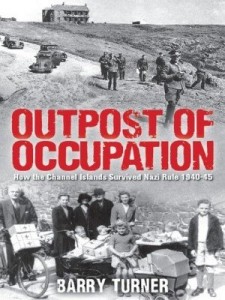The Channel Islands were what could have happened to all of us: a test-run of German occupation. That was certainly Hitler’s plan. Once Britain had demilitarised the idyllic, unspoilt holiday islands of Jersey, Guernsey, Alderney and Sark in 1940 their fate was sealed: in July the Germans invaded.
The following five years in their history offer an intriguing, and often uncomfortable, virtual history of how Britain might have looked under Nazi rule – and how British people, more to the point, might have responded to it, whether through submission, courageous resistance or even collaboration.
Barry Turner’s is the first history of the Occupation since Madeleine Bunting’s acclaimed but controversial A Model Occupation in 1995. It is an extremely readable and above all fair-minded account, rich in personal testimonies, showing the extreme privations suffered by the Channel Islanders, so utterly cut adrift by Britain – even if for defensible reasons of wartime expediency –, and above all the huge moral and civic task required of their pre-war governing class, several of whom could hardly have been expected to rise to the occasion. It also draws on newly released documents in the Public Record Office to reveal the messy confusion of Britain’s postwar attitude to the Channel Islands, a source of enduring resentment there.
The following five years in their history offer an intriguing, and often uncomfortable, virtual history of how Britain might have looked under Nazi rule – and how British people, more to the point, might have responded to it, whether through submission, courageous resistance or even collaboration.
Barry Turner’s is the first history of the Occupation since Madeleine Bunting’s acclaimed but controversial A Model Occupation in 1995. It is an extremely readable and above all fair-minded account, rich in personal testimonies, showing the extreme privations suffered by the Channel Islanders, so utterly cut adrift by Britain – even if for defensible reasons of wartime expediency –, and above all the huge moral and civic task required of their pre-war governing class, several of whom could hardly have been expected to rise to the occasion. It also draws on newly released documents in the Public Record Office to reveal the messy confusion of Britain’s postwar attitude to the Channel Islands, a source of enduring resentment there.












